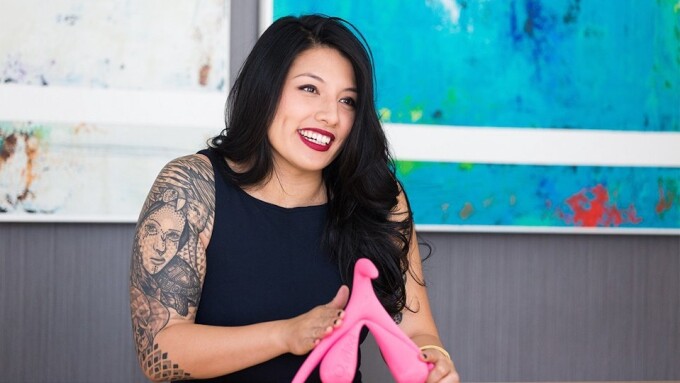LOS ANGELES — O.school founder Andrea Barrica talked sexual wellness, the future of sextech and her new book in an interview this week.
Barrica also spoke with Medium's OneZero about how she got started in sextech, where she sees it heading and what needs to change about it.
"Sexual repression got me into tech," Barrica told OneZero writer Lux Alptraum. "The internet should have solved this problem. But my Google searches early on weren’t bringing me the thing that helps the healing process. They were mostly bringing things that added to my pain and confusion."
Barrica founded O.school to bring comprehensive, wellness-focused sexual education to the masses over the internet through video streaming, with content from gynecologists, dating coaches, sex educators and therapists.
"When I entered the space, I knew there was a ton of community work being done, I knew that there were in-person experiences and I knew that there were tons of organizations doing [sex education] on a grassroots, nonprofit level," said Barrica. "But when I looked at it from the tech and venture capital lens, I was like, holy crap, there’s nothing here. And it didn’t make any sense to me."
Barrica's book, "Sextech Revolution: The Future of Sexual Wellness," was published last month. One focus of the book is on sextech's diversity and its ability to change the internet.
"A lot of people with a lot of power get to design what the future will look like," Barrica told OneZero. "And there are not enough stakeholders in that mix. Young cis white dudes out of Stanford were the ones given the onus to really design the future for the rest of us."
Barrica also spoke about the imperative to make sure the largest tech corporations aren't monopolizing the sexual wellness online space.
"One of the things that I tell people as I’m raising money is that I feel a moral imperative to not let Amazon win this," she said. "One of the reasons why I continue to build towards the largest possible vision that O.school can be is because I don’t want a larger player with more capital behind them to do it without the same lived experiences."
She then pointed out how things are online with how they could have been, and how they could be.
"The way the internet was built was without a lot of mindfulness," she said. "It wasn’t mindfully created. And sexual wellness teaches people to be in their bodies and to pay attention. We would have seen a tech industry where people were paying attention to what would actually happen to the billions of people their platform would affect."







